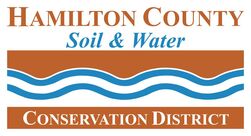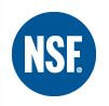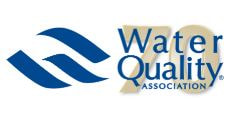Private Well Water Program
|
Well Assessment
Just like a car's maintenance record, you should keep a log of all work done to a well. Creating a record of maintenance, repairs, testing, and changes to the well helps users from the headache of having to dig up records and information. If problems arise, diagnosis and treatment may be easier and swifter with access to the well history. Buyers may see more value in a well that has a record than one that does not. How to get your water tested?
Stop by our office to pick up sample bottles. We are located on the Fairgrounds in Noblesville next to the Household Hazardous Waste Facilities. For questions and additional information, contact [email protected]. Samples must be collected according to a specific procedure and in special bottles. Please call ahead and schedule to drop off samples before 10am on Thursday. Bacteria samples will not be accepted if they are not collected according to directions. This includes collections from the tap on Thursday and immediately brought to office for delivery. Annual sampling for bacteria, nitrogen, arsenic, lead, copper and/or anything detected in high concentrations in previous sampling is recommended. Every 5 years conduct baseline testing including inorganics, metals, bacteria (total coliform & E. coli), and anything else of concern for your area. Additional Resources The Private Well Class- Free Well Care Classes for private well owners http://privatewellclass.org/ The National Groundwater Association- General information, videos, lessons, and resources for well owners http://www.wellowner.org/ Indiana State Department of Health- Water Supply information- Information on certified labs, ISDH Laboratory and other great information http://www.in.gov/isdh/20408.htm Indiana Department of Natural Resources, Division of Water- Groundwater/Wells Frequently Asked Questions- Information on well construction, well drillers, and water rights http://www.state.in.us/dnr/water/3482.htm Indiana Department of Environmental Management - Information and links covering groundwater protection, contaminants of concern, sampling, disinfecting, and others www.in.gov/idem/cleanwater/2452.htm Indiana Geological Survey-Groundwater and geology of Indiana https://igs.indiana.edu/groundwater/ Hamilton County Health Department Well Drinking Water Testing All new or repaired wells in Hamilton County are required to be permitted. Once a well is drilled or repaired, it must be sampled to ensure a safe drinking water supply. The Hamilton County Health Department will sample the well using the Indiana State Health Department laboratory or applicants may use a state certified laboratory for water sample analysis. Visit the Hamilton County Well Water Supply Program website for more info or call (317) 776-8500. Other testing options State Department of Health water test kit form Indiana Certified Microbiological Laboratories, click here Indiana Certified Drinking Water Laboratories, click here The Hamilton County Health Department lobby is a pick-up and drop off location for Hoosier Microbiological Laboratory (HML) Treatment Treating for health concerns or for taste an odor should be followed up with a service provider you trust. Your results will indicate if the water exceeded any primary or secondary standards. Any primary standard that is exceeded indicated a health risk and treatment options should be researched. Any value that exceeds a secondary standard indicated that taste, odor, or plumbing issues may arise, but will not create any adverse health effects. You can determine if a filter or treatment unit will treat the waterborne contaminant you can check these two organizations that test and certify water filters and treatment units to industry standards. Click on Logo below for their websites: Different water filters have different functions. Some can make your water taste better, while others can filter out harmful chemicals or germs. No single filter can keep every type of contaminant out of your drinking water, and not everyone needs a water filter. There are some benefits to raw water that can be lost with filters or treatments. Talk to your health care provider to determine if you should consider treatment or if supplements should be added.
Most water can be treated if it contains a contaminant of concern. Here is a helpful guide for treatment technologies CDC Treatment Technologies (pdf) Cap Unused Wells One of the key ways to protect our groundwater from contamination is to seal and close wells that are not in use. Open and abandoned wells are a direct conduit of surface contamination to make it into our groundwater without the benefit of moving through our soil filter first. We have a well capping grant program for those interested, please contact our office to learn more about this opportunity. Visit our Well Capping page for more info on Cost-share for well capping. |
Available Tests
Annual Well Testing Package Cost $65 includes: certified bacteria certified nitrate + nitrite certified simple metal Includes $10 handling fee ISDH Certified Laboratory Sampling Bacteria — cost $15 total coliform & Escherichia coli (E. coli) - positive or negative results Nitrates — cost $15 nitrate + nitrite as N Simple metals — cost $25 arsenic, lead, and copper Medium metals - cost $85 arsenic, cadmium, chromium, copper, lead, magnesium, nickel, selenium Long metals - cost $155 medium metals & boron, calcium, iron, magnesium, sodium, strontium, zinc & hardness Pesticides - cost $130 Package of 32 analytes including simazine, atrazine, lindane, DDT, metochlor, chlordane Radionuclides — cost $105 screen for gross alpha & beta particles, uranium, and radium-228 Drinking Water Volatiles - cost $80 Package of 60 analytes including fumigants, gasoline hydrocarbons & oxygenates, organic synthesis compounds, refrigerants, solvents, and THMs (chlorination by-projects) SafeWell check - cost $5 in-home testing kit Additional Fees + Handling fee $10 We ship or deliver the test straight to the lab, so you don’t have to worry. (Drop off by Thursday 10am) + Service fee $50 applies when we take the water sample from the source for you. This is waved in conjunction with a well assessment appointment. |


